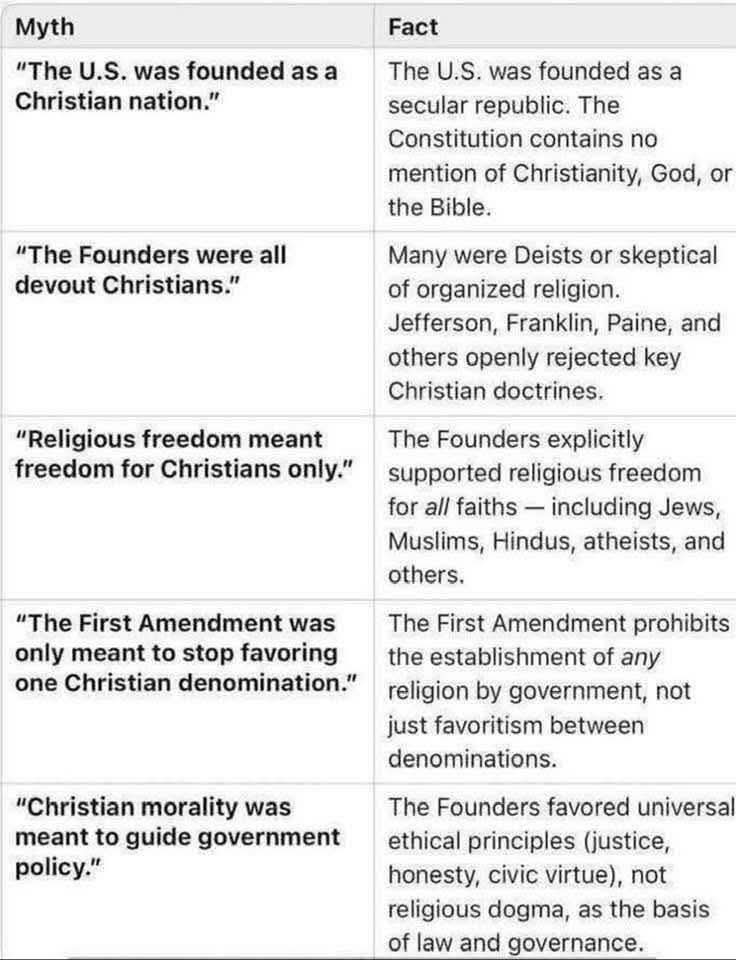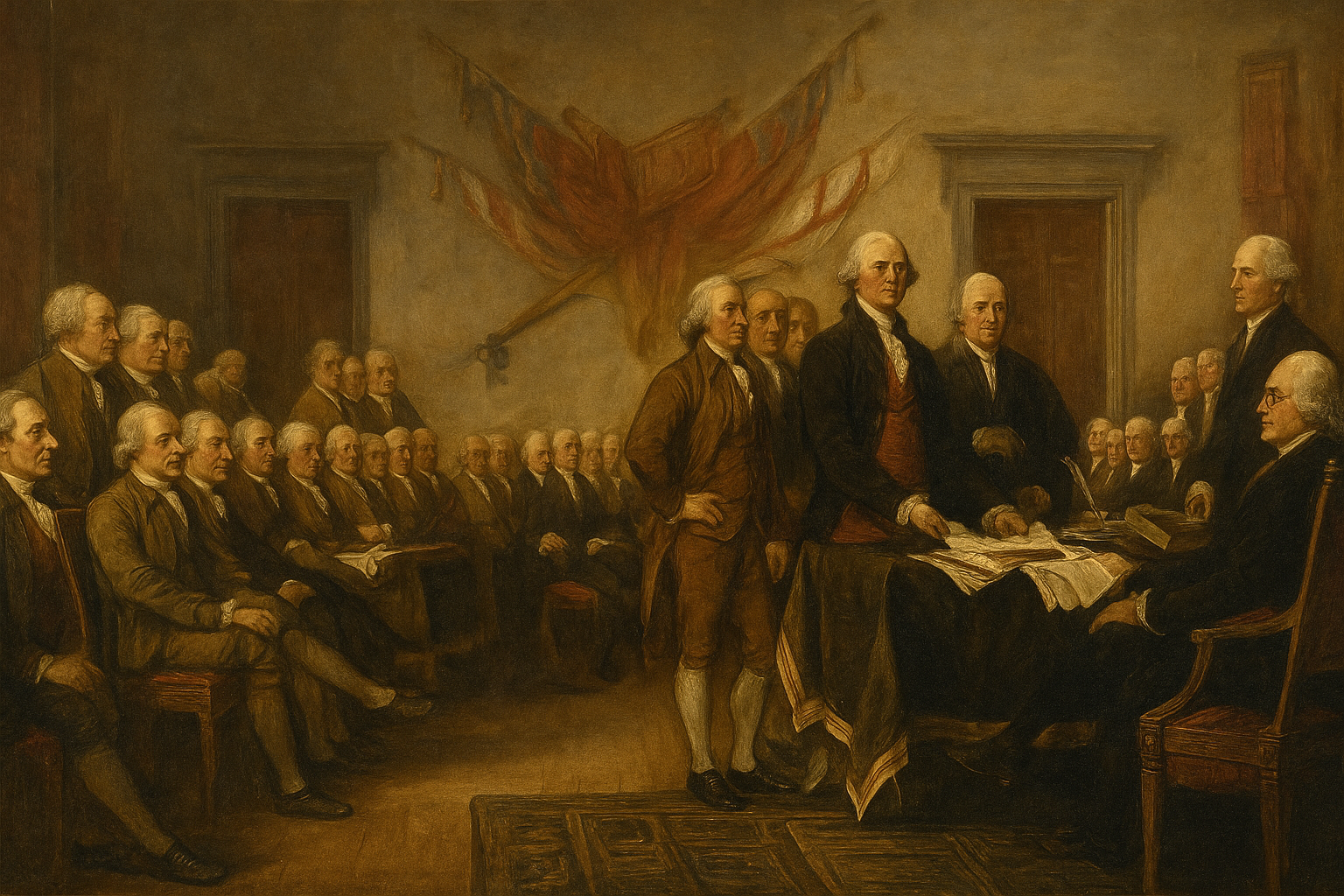
Inspired by a “Myth vs. Fact” image about America’s founding and religion, I wanted to dig deeper—past slogans and into the record. Here’s what the sources show, and why it matters now.
What the fact sheet gets right… and why it matters
1) The U.S. was designed as a secular republic. The Constitution contains no references to “God,” “Christianity,” or the “Bible.” Article VI bans religious tests for office, and the First Amendment bars government establishment of religion while protecting free exercise. That neutrality is a feature, not a flaw—it’s the guardrail that keeps conscience free for everyone.
2) The founders’ beliefs were diverse; many were skeptical of state-enforced religion. Belief among framers ranged from devout to Deist to skeptics of church power. Jefferson’s authorship of the Virginia Statute for Religious Freedom captured the principle that civil rights don’t depend on religious opinion—an idea that became part of our national DNA.
3) Religious liberty was conceived as universal, not Christian-only. Founding-era texts repeatedly frame liberty of conscience for all people. Jefferson’s famous “wall of separation” letter is one example of the intent to keep government from privileging or policing belief.
4) The First Amendment prohibits establishment of any religion—not just favoritism among denominations. Early federal practice underscored this neutrality abroad as well: in the 1797 Treaty with Tripoli, ratified by the Senate, the U.S. assured a foreign power that its government was “not, in any sense, founded on the Christian religion.”
5) The founders aimed for civic virtues in law, not sectarian rule. They grounded the republic in consent, justice, and liberty, while protecting private faith from state control and the state from sectarian capture. That balance is how a religiously diverse nation lives together.
Why these myths are dangerous today
When nationalism borrows religious language, history turns into a weapon. The “Christian nation” myth narrows belonging, invites government to pick theological winners, and distorts the founders’ actual design. A faith that’s freely chosen doesn’t need the state’s sword; a state that serves all can’t wear any church’s collar.
My invitation
Let truth be stronger than propaganda. Honor sincere faith by refusing to weaponize it. Honor the Constitution by defending a government that protects belief—and disbelief—equally. Pluralism isn’t moral relativism; it’s the civic promise that lets each of us seek moral truth without coercion.
References (primary & reputable)
- U.S. Constitution, Article VI (no religious tests) — Library of Congress
- First Amendment text — National Archives
- Religion and the Federal Government: The Constitution — Library of Congress
- Jefferson to the Danbury Baptists (1802) — Founders Online, National Archives
- Virginia Statute for Religious Freedom (1786) — Encyclopedia Virginia (Virginia Humanities)
- Draft/history of the Virginia Statute — Founders Online, National Archives
- Treaty with Tripoli (1796–97), English text — Yale Avalon Project
- U.S. Courts: First Amendment & Religion (overview of Establishment/Free Exercise)
- National Constitution Center: Essays on the Establishment Clause

